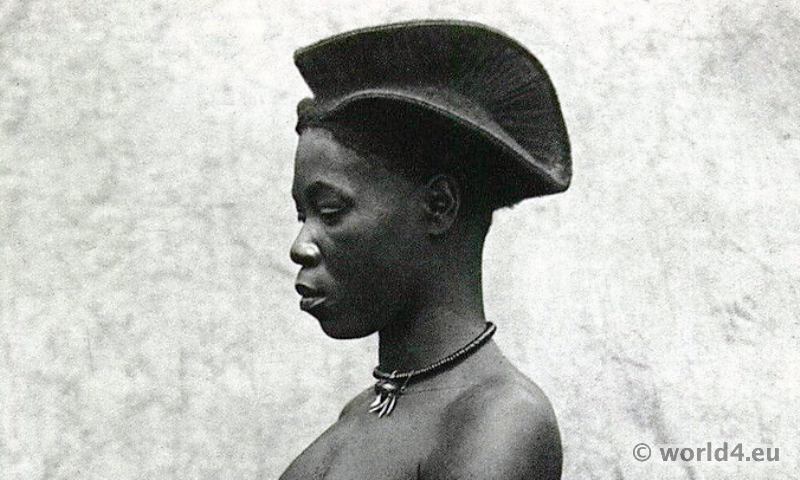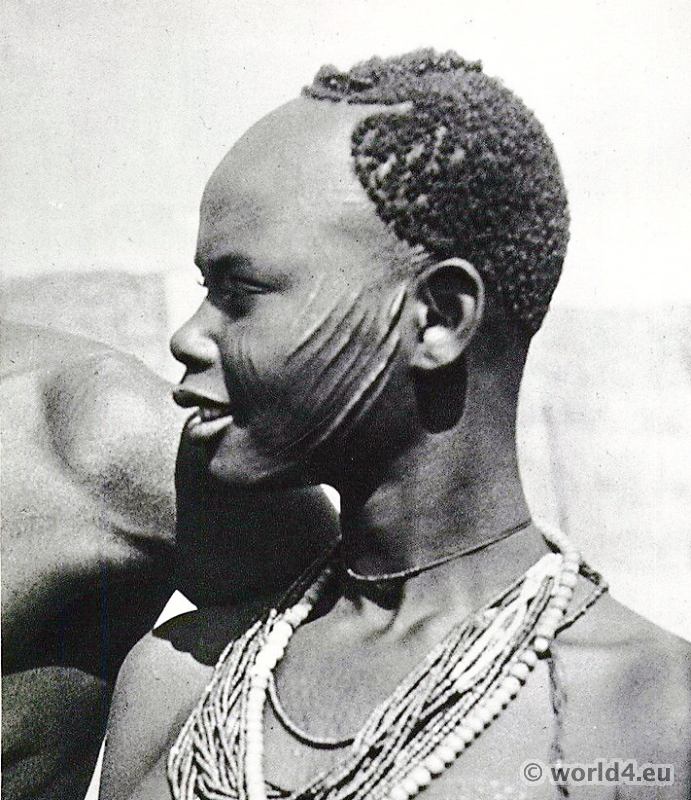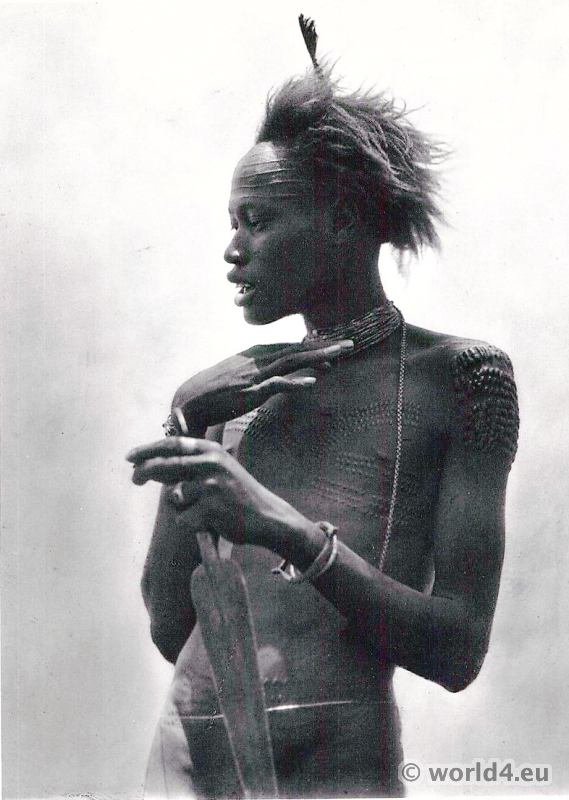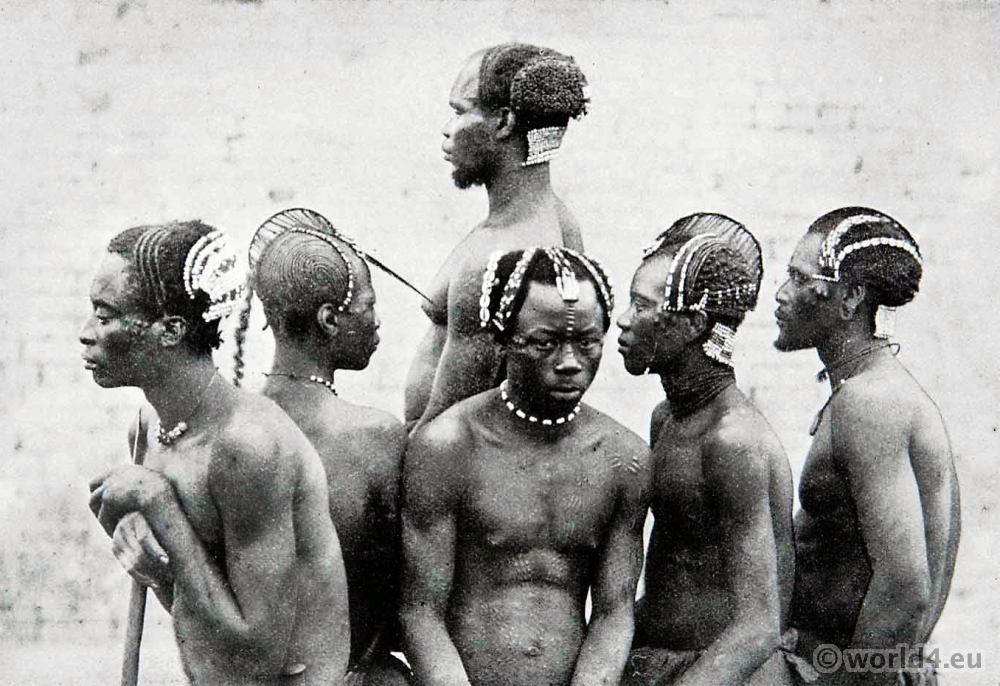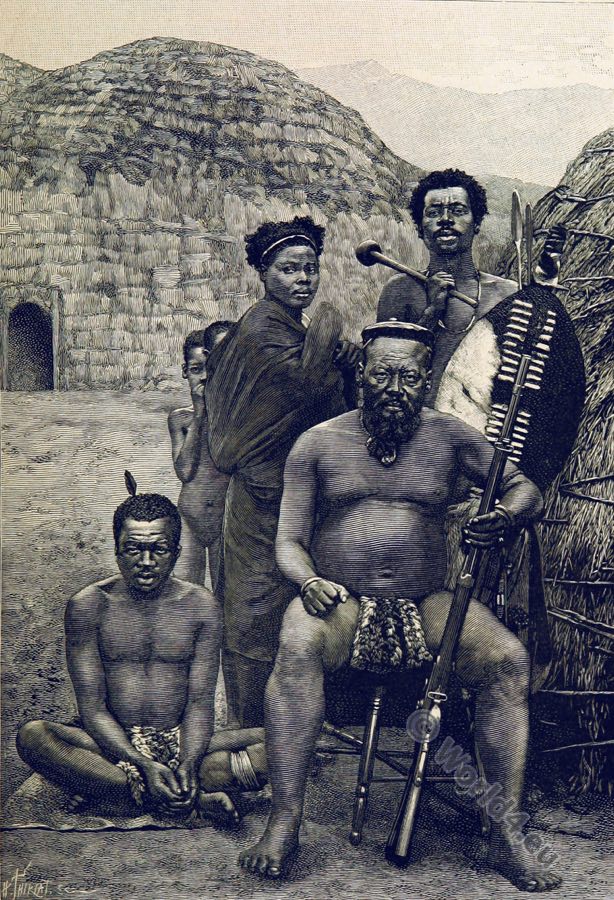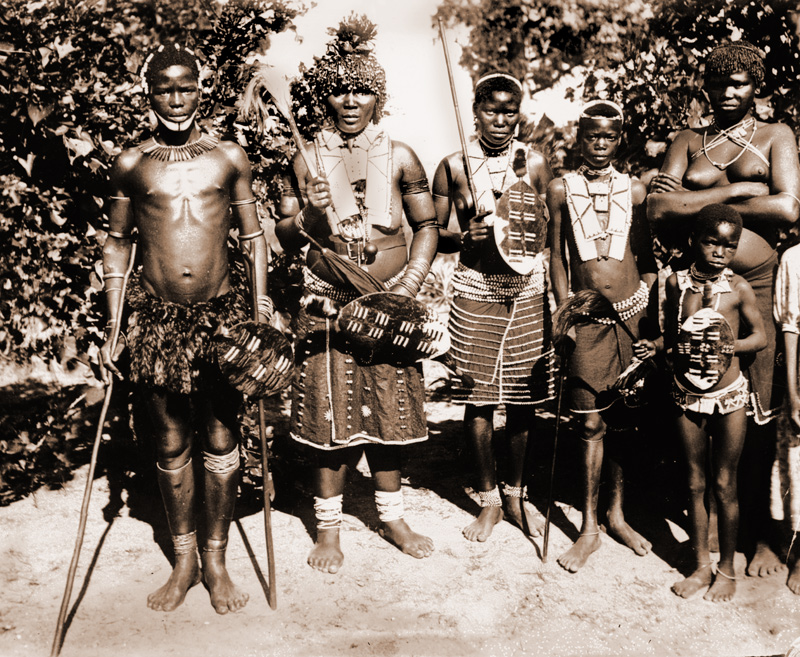
An African orchestral group of the Bateke tribe, Sudan.
From a photograph taken among the Bateke tribe, Central Africa, representing a orchestral group. Three of the men are blowing into bottles, the fourth is blowing a great horn made from a calabash gourd. The bottles are ornamented with strings of cowry shells and are furnished with straps by which they are carried upon the shoulders of the performer when not in use.
The Batéké (also Bateke, Baréké, Teke, Batio, Tio or Tyo, formerly also Anzika) are an ethnic group in Central Africa. They belong to the Bantu and are divided into different groups. They live mainly in Gabon and the Republic of the Congo and in the Democratic Republic of the Congo.
The Bateke were firmly established for a long time in the area in which the Kasai flows into the Congo. Originally they lived from hunting, agriculture and fishing. From the 15th century onwards they developed into successful traders who used the rivers as transport routes. They were already involved in the slave trade at that time. The empire was decentralized and held together by kings called Makoko; power was distributed among local chiefs. Mbé was the political centre.
The Portuguese Diogo Cão in 1482 was the first European to reach the mouth of the Congo and established contact with the Bateke. In the 15th and 16th centuries there were many wars with the Bakongo. In the early 18th century, the Bateke kingdom reached its greatest extent; from Pool Malebo along the Congo river to Bolobo. In the late 18th century they lost some of this area to their neighbours. In the late 18th century and early 19th century trade relations became increasingly important. Some of what used to be locally produced, the Bateke imported from the coast. The currency was slaves from the inland.
After 1880, the Bateks came under French rule by the officer and discoverer Pierre Savorgnan de Brazza, when their king Ilo Makoko signed a protectorate treaty and was later incorporated into French Equatorial Africa. In 1898, there was an uprising against the harsh French regime, during which about three quarters of the Bateke were killed.

